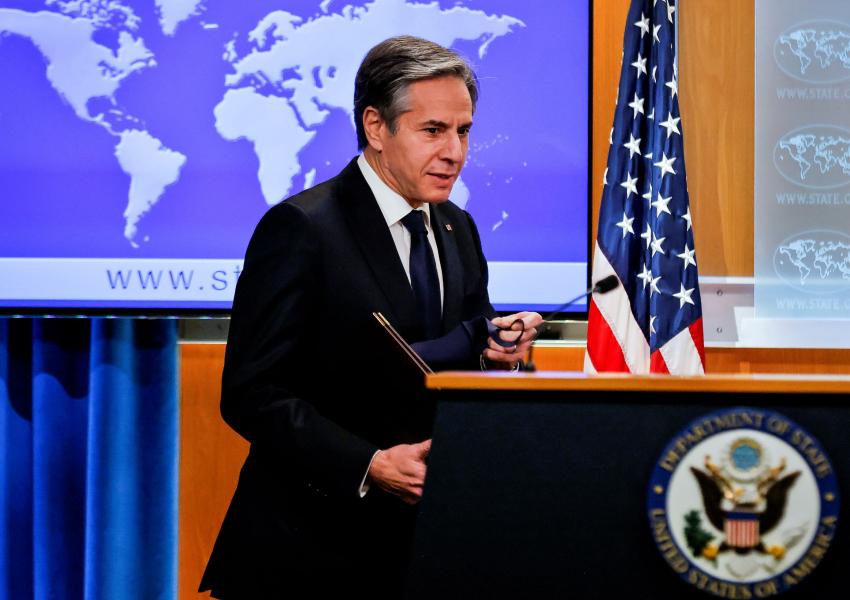
Biden Officials Emphasize Both Consultation And Urgency In Reviving Iran Nuclear Deal
Denied access to information during transition by the Trump administration, the new foreign-policy team of President Joe Biden is taking time to get up to speed on many issues. In an interview with MSNBC on Monday [February 1], Secretary of State Antony Blinken said he had “not seen the actual intelligence yet” on the Iranian nuclear program.
On Tuesday, Ned Price, the State Department spokesman, put Iran policy within the new administration’s general commitment to multilateralism, breaking with Trump’s ‘America First’ and the notion that international ‘deals’ should be struck bilaterally through two leaders’ establishing rapport.
The spokesman emphasized “our alliances, our partnerships globally.” While welcoming the ‘normalization’ of relations between Israel and some Arab countries, Price stressed the importance of “a negotiated peace between Israelis and Palestinians,” a process that critics said the Trump administration ditched.
With Iran, Price emphasized the importance of consulting with “allies and partners” – which he called “a constant refrain of our foreign policy.” There had been no direct discussions with Iran, he said, and did not expect any “until those initial steps go forward.”
Both Biden and Iranian President Hassan Rouhani have expressed an intention to revive the 2015 Iran nuclear deal, the JCPOA (Joint Comprehensive Plan of Action), which Trump abandoned in 2018. In December remaining JCPOA signatories – Iran, Russia, China, Germany, the UK and France – agreed a statement calling for both Iran and the US to return to the agreement, as endorsed by the United Nations Security Council resolution 2231.
This would mean the US lifting “nuclear related” sanctions and Iran reversing steps taken since 2019 beyond the nuclear limits set by the JCPOA, including enriching above 3.67 per cent and using more advanced centrifuges.
But as Rafael Mariano Grossi, International Atomic Energy Agency head, pointed out in December, this requires an agreed plan for implementation, including sequencing and agreement on which sanctions are “nuclear related.” The Trump administration introduced sanctions that its officials claimed would complicate attempts to revive the JCPOA even though ostensibly linked to matters like ‘terrorism,’ and Iran complained heartily after 2015 that the US did not lift all the sanctions required by the deal.
On Monday Iranian Foreign Minister Mohammad Zarif suggested that an EU official might “synchronize” or “choreograph” moves by the US and Iran to revive the agreement –while EU spokesman Peter Stano on Tuesday said EU foreign policy chief Josep Borrell was already engaging with all sides to revitalize the deal. Asked about Zarif’s remarks, Price reacted coolly on Tuesday without rejecting them, emphasizing that Washington’s current focus was on consultation over the best way forward.
Price reiterated Biden’s policy of first returning to the JCPOA and subsequently seeking a broader agreement with Tehran over other issues, including regional security and defense.
“If Iran resumes full compliance with the JCPOA, we will be prepared to do so,” Price said. “If Iran does take those steps and we re-enter the JCPOA, we would seek to…lengthen and strengthen [the agreement] … to use that as a platform for follow-on agreements that would take on other areas of concern.”
While emphasizing consultation, Price stressed the Iran nuclear issue was “a challenge we have to tackle immediately.” While experts differ on timings, Iran’s expansion of its nuclear program since 2019 has reduced the so-called ‘break out’ – the time required to assemble enough fissile material for a crude atomic weapon – from the minimum one year effectively set by the JCPOA.





